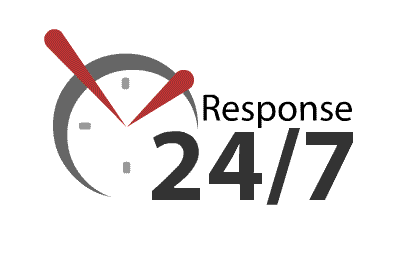If you’re looking to start a hotel construction project, it can seem like an overwhelming task, especially when it comes to financing. Where do you begin? How much capital will be needed? What financing options are available, and which is suitable for your project? Financing is an essential aspect of any business venture; however, with the right amount of knowledge and research into different loan types, getting funding for your next hotel construction project doesn’t have to be stressful. In this blog post, we’ll cover the critical components of successful hotel construction projects, including understanding the investment requirement and various loan types available to assist in achieving success.
Overview of Hotel Construction Financing Options
When it comes to financing hotel construction, there are several options for developers to choose from. One popular option is debt financing, where a loan is taken from a bank or another lender to cover construction costs. Another option is equity financing, where investors provide the necessary funds in exchange for a stake in the hotel’s ownership. In addition to these traditional methods, crowdfunding has emerged as a viable option in recent years, allowing developers to raise funds from a large pool of individual investors. Each financing option comes with its own advantages and disadvantages, and it’s essential for developers to carefully consider their choices before moving forward with a project. Ultimately, the right financing strategy will depend on factors such as the size and scope of the project, the developer’s financial goals, and the current market conditions.
Pros and Cons of Traditional Bank Loans
Traditional bank loans can be a popular option for small business owners looking to secure funding. These loans allow businesses to take out a lump sum of money that can be used for various business expenses. However, they also come with a few drawbacks. One major disadvantage is the lengthy application process, sometimes taking weeks or even months to complete. Additionally, traditional bank loans often require collateral and a strong credit score to be approved. On the positive side, conventional bank loans usually offer lower interest rates than other financing options. Ultimately, it’s vital for business owners to carefully weigh the pros and cons before deciding whether or not to pursue a traditional bank loan.
Benefits of Alternative Financing Sources
Alternative financing sources have become increasingly popular in recent years and for a good reason. One of the most significant benefits of these sources is that they provide funding opportunities for those who may not qualify for traditional bank loans. This primarily benefits small businesses, startups, and individuals with less-than-perfect credit histories. Alternatively, financing sources often have more flexible repayment schedules and may offer lower interest rates than traditional lenders. Overall, choosing an alternative financing source can provide you with the financial support you need to bring your ideas to life and achieve your goals.
Review of Secured vs. Unsecured Loans
When borrowing money, it’s essential to consider the differences between secured and unsecured loans. Secured loans require some form of collateral, such as a house or car, to be put up as security for the loan. This gives the lender a sense of security, as they can seize the collateral if the borrower cannot make their payments. Unsecured loans, on the other hand, do not require collateral and are typically based on the borrower’s creditworthiness. While unsecured loans may seem easier, they often come with higher interest rates and stricter qualifications. It’s essential to carefully weigh the pros and cons of each type of loan before making a decision.
Strategies for Leveraging Capital
For businesses, leveraging capital is vital to achieving growth and success. But how do you go about unlocking the full potential of your capital? Effective strategies involve a keen understanding of your company’s financial situation, identifying opportunities for profitable investment, and minimizing risk. Analyzing financial data, crafting a sound budget plan, and seeking out diverse funding sources are all activities that can help businesses leverage their capital. In addition, seeking expert advice from financial professionals can help guide decision-making, ensuring that resources are allocated most efficiently and productively possible. By employing these strategies, businesses can unlock the full potential of their capital, achieving long-term financial growth and stability.
Understanding Tax Implications for Hotel Construction Projects
Understanding the tax implications of a hotel construction project can help hotel owners and developers save money in the long run and ensure they stay compliant with local, state, and federal regulations. Knowing which taxes apply to what, when payments are due, and possible deductions all play into making the right decisions related to construction taxation. Whether it’s a taxable supply chain or value-added tax, understanding each element of your project’s tax implications is key to successful execution–not only now but also during possible audits down the road. It’s important for hotel owners and developers alike to work with an expert who understands the accounting complexities of their project and can provide advice on how to take full advantage of every tax benefit available.
Direct Commercial Funding: Your Partner in Hotel Construction Financing
Are you looking to start a hotel construction project? At Direct Commercial Funding, we understand that securing the right financing is crucial for success. Our team of experts will guide you through the process, providing customized solutions to fit your unique needs. With a wide range of financing options available, including SBA loans and bridge loans, we have the resources to make your hotel construction dreams a reality. Contact us today to learn more about how we can help you secure the funding you need for a successful hotel construction project.
Final Words
In conclusion, financing options for hotel construction projects are complex and varied. Understanding the different types of loans, the pros and cons of traditional bank funding, the benefits of alternative capital resources, secured vs. unsecured loan structures, capital leverage opportunities, and tax implications is critical to make an informed decision about the best available financing solution for each hotel project. With careful consideration and detailed planning before selecting a financing option, hotel owners can be confident that their venture will succeed over the long term. Ultimately, the goal should be to prevent any adverse financial outcomes so that your investment yields profitable returns.







Leave a Reply
Want to join the discussion?Feel free to contribute!